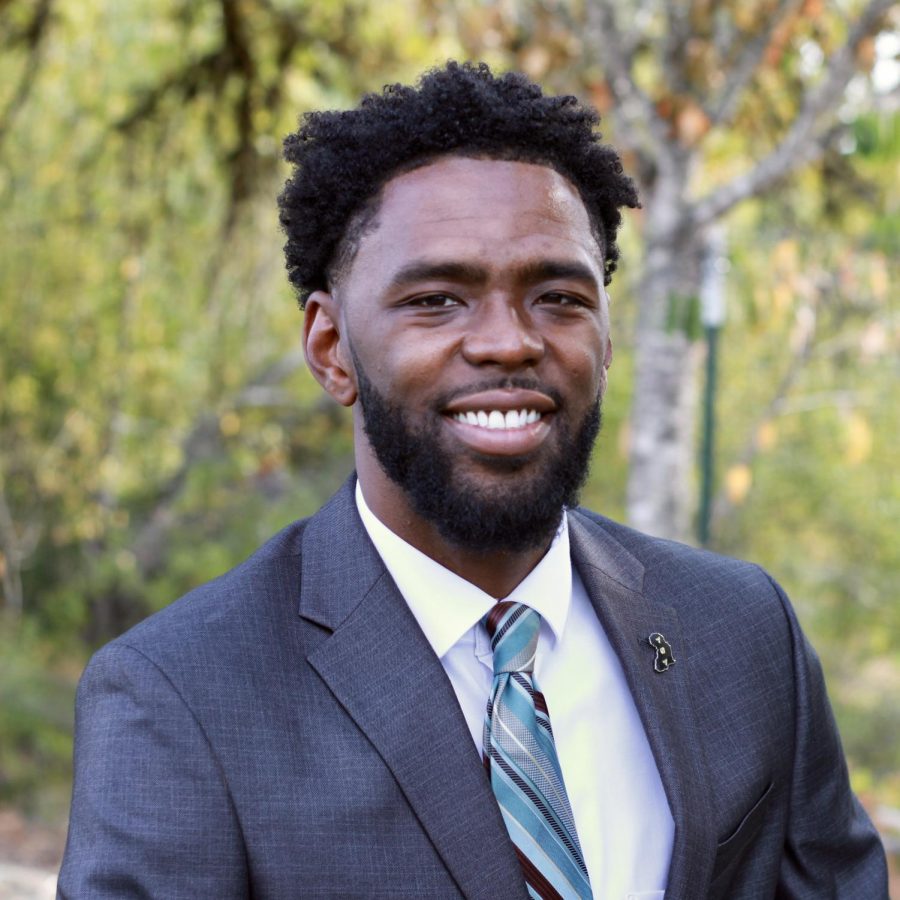President Jason J. Dorsette is putting the Linn-Benton County branch ‘on the NAACP map’
Jason J. Dorsette, president of the Linn-Benton County branch of the NAACP. Now entering his second year of presidency, Dorsette said the last year was explorative and transformative for the branch.
January 3, 2022
The Linn-Benton County Branch of the National Association for the Advancement of Colored People elected Jason J. Dorsette president of the branch in January 2021, and this January marks a year into his term.
The NAACP is a national civil rights organization that, according to their website, works to “disrupt inequality, dismantle racism and accelerate change” for Black Americans.
Dorsette, who grew up in North Carolina under civil rights leaders, was chosen as president of the Linn-Benton Branch of the NAACP because he is “a champion of diversity, equity and inclusion in higher education, government and corporate enterprises.”
Christopher Hughbanks is the first vice president of the Linn-Benton Branch of the NAACP. His focus is on youth development as well as community development and education.
“[Dorsette’s] vision has been to get people involved,” Hughbanks said. “Member engagement has been a really big issue for him.”
Hughbanks said Dorsette has helped expand the branch by streamlining processes.
“[Dorsette] helped us grow into ourselves,” Hughbanks said.
Assistant Secretary of the Linn-Benton County Branch of the NAACP Roberta Smith said Dorsette encouraged growth in membership participation through his attention and commitment to the growth of branch committees.
“He’s a wonderful guy,” Smith said. “He’s welcoming, he remembers names, he reaches out to people. [He’s] really a good leader [and] a good speaker. He’s done that kind of outreach… doing speaking in the different layers of the organization that I don’t think we’ve had before.”
The success of the branch in 2021 under Dorsette’s leadership was shown in youth outreach programs in which Hughbanks was heavily involved. Hughbanks said youth advocacy is a goal he hopes to continue working toward at the branch, connecting youth to history and engaging them, making sure their voices are heard.
“I think there [have] been great successes, and it’s been great to reach out to the community and to get connected with more of the schools,” Hughbanks said. “And I think we foster strong relationships.”
Dorsette described 2021 as explorative and transformative for the branch. He said the branch has grown through new initiatives and committees such as the Home and Homeless Committee and Environmental and Climate Justice Committee, as well as increased membership numbers and engagement. As of December 2021, Dorsette said the branch has 615 members.
“Given that last year and this year we’ve been experiencing COVID-19, we’ve had to pivot,” Dorsette explained. “Our organization really thrives off of being in physical community with each other, and we’ve had to, like everyone else in the world, engage in virtual platforms and different activities virtually. But to my surprise, our members are still as vibrant as ever and still engaged.”
Dorsette said the branch has done training on how to use virtual platforms such as Zoom and YouTube to serve the 65% of members who are elderly.
Smith said she would like to see more involvement by membership in the branch. Furthermore, Smith explained that membership outreach has become more difficult through remote methods of communication; the ability to create personal connections is lost.
Dorsette said being president of the branch thus far has had positives and negatives.
“I’ve learned so much from our members who are extremely diverse… and [I’ve had] the opportunity to not only deposit what I’ve learned over the years, coming up under civil rights leaders… even me, I’ve had an opportunity to learn so much from our members,” Dorsette said.
However, Dorsette said his efforts as president of the branch have “come at a cost.” He explained he has been exhausted by the volume of phone calls and emails he has to respond to.
Dorsette said he is frustrated that the NAACP has had to do the same work for over 112 years as a national organization. He has also sacrificed parts of his private life, moving to Salem, Ore. despite the commute for more privacy and rest.
“I really miss just being a normal person,” Dorsette said.
Dorsette said he hopes to improve the branch’s ability to partner with local and regional organizations on social justice, including intersectional work with the LGBTQ+ community, supporting culturally relevant businesses and continuing mentorships and partnerships with education institutions.
“I would like the OSU [and county] community to know that we need their support, no matter how large or how small, we need their support,” Dorsette said. “There’s room for everyone to get involved regardless of your race, ethnicity [or] religious beliefs.”











































































































